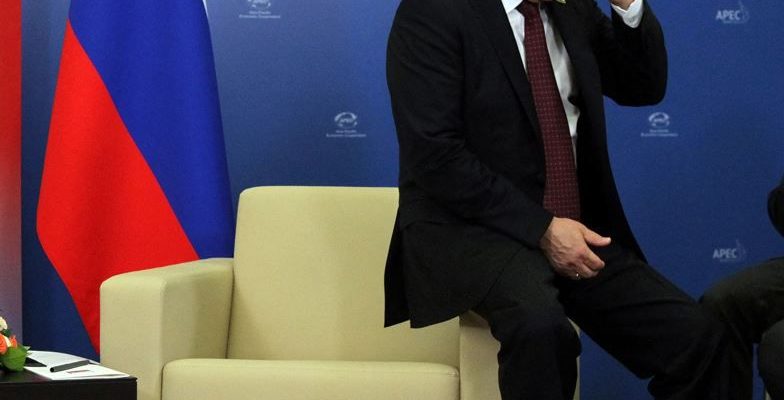Did the Ukrainian army try to assassinate Vladimir Putin? In any case, this is what Moscow says, which announced on Tuesday May 3 that it had intercepted two drones targeting the Kremlin. According to Russia, it was an attack by kyiv, orchestrated by Washington. Both countries have denied the charges. Ukraine even accused Russia of “staged” the drones to justify an escalation of the conflict.
If the attack is real, it could well amplify Vladimir Putin’s paranoia. “He was always very careful”, admits to L’Express Galia Ackerman, historian, translator and author, specialist in the Russian and Soviet world. “But it has gotten stronger over the past few years.” The Russian president now applies a very strict routine, guided by the fear of dying.
No crowds, no telephones
Vladimir Putin’s actions are closely watched. Starting with his interactions: the Russian president never takes walks, and does not discuss naturally with citizens. “When he visits a hospital, or when he meets soldiers’ mothers, they are always hand-picked people,” explains Galia Ackerman. “The exchange is more staged than spontaneous.”
As far as his travels are concerned, Vladimir Putin avoids flying as much as possible. A former officer of his security service, Gleb Karakulov, explained to the investigative media Center Folder that the president preferred to travel in an armored train, which looks like an ordinary train from the outside. He also assured that fake processions of vehicles regularly left his official residences to cover their tracks. Finally, rumors circulate in Russia: Vladimir Putin would not go in person to all the events, and would sometimes call on look-alikes for brief public appearances. Nothing has been confirmed as of yet.
If, however, he is visiting abroad, he asks for access to television. Because “Putin lives in his bubble”, notes Galia Ackerman. He has no social media accounts or phone. The information he receives is drawn from Russian television channels, his relatives, and reports from the secret services. “I could see how distorted the news reaching him is,” Gleb Karakulov told Dossier Center.
His own food, his own toilets
Vladimir Putin controls even the most benign acts of daily life. When on the move, he eats his own food and only uses his own toilet. “All his droppings are collected,” says Galia Ackerman. “Putin is afraid that they can be recovered and analyzed by opponents, he even fears that we can develop a poison from it.” The Russian president also pays great attention to his health. At the age of 70, he surrounds himself with doctors and practices a sporting activity. “I’m sure he doesn’t do a push-up without a doctor next to him,” jokes Galia Ackerman. Rumors also lend him various facelifts.
While these measures may seem extreme, Soviet history has already demonstrated that leaders were never truly safe. “Many were shot or dismissed,” recalls Galia Ackerman. For example, Joseph Stalin was left for several hours without medical assistance after a stroke, also with poisoning theories. Lavrenti Beria was trapped, then arrested and executed. These past plots, combined with his skills as a former KGB officer, prompt Vladimir Putin to be extra careful.
After the alleged drone attack, Moscow therefore announced a reinforcement of security. “Everything has already been reinforced in the context of the preparations for the military parade” on May 9, said Dmitri Peskov, spokesman for the Kremlin. May 9 is the date on which Russia celebrates the victory over Nazi Germany. “Specialists” are also “conducting in-depth analyses” to understand how the alleged drone attack could have occurred, added Dmitry Peskov. Galia Ackerman summarizes: “The bet to get rid of Vladimir Putin is not won.”
